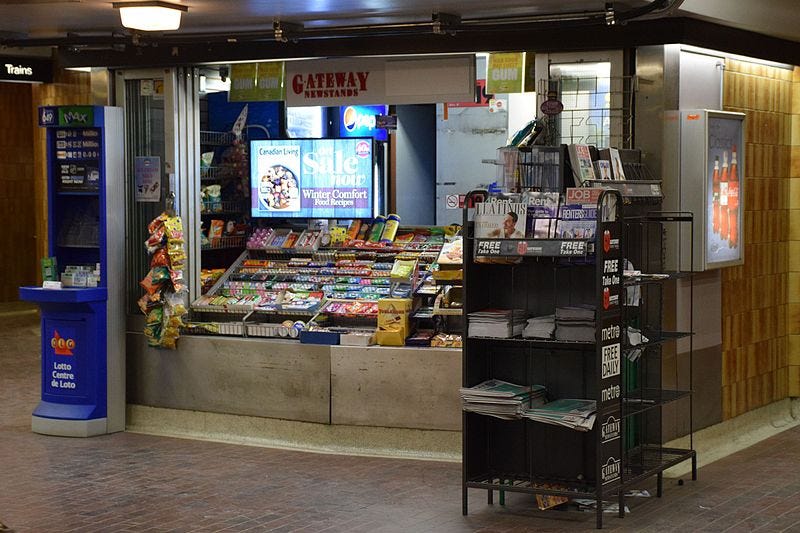It's time Toronto allowed world class transit retail
Pandemic bankruptcies create unprecedented opportunity to do something better

It's a tough time to be in the news and magazine business. It’s an even tougher time trying to sell newspapers and magazines to transit commuters. …
Keep reading with a 7-day free trial
Subscribe to Issues & Insights to keep reading this post and get 7 days of free access to the full post archives.

